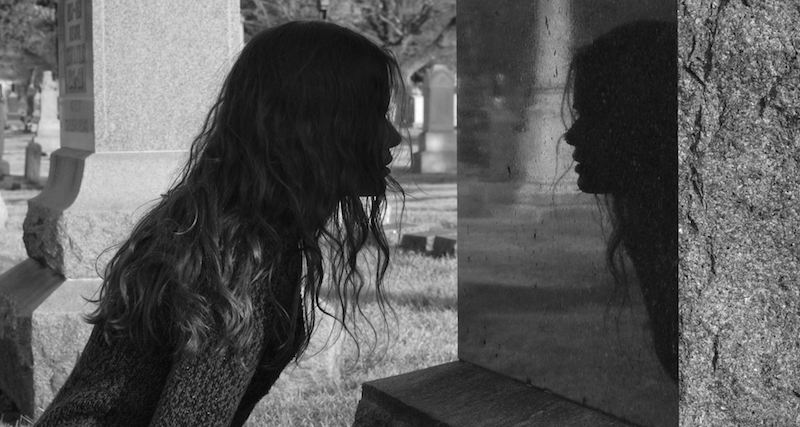
Photo courtesy Jessicapetersonart.com
Please Don’t Tell me To Move On
by Anne Peterson
I have a Master’s Degree in grief. Not a real one, but believe me, I should have an honorary one.
And one thing I know for sure. Grieving stinks.
All of a sudden you’re invited to a party you never wanted to attend. But there are no balloons, no confetti, the only thing being thrown around are your emotions.
There are no tears of joy, but plenty of tears nonetheless. And what makes things worse are some of the things people will say.
“You need to move on.”
If someone lost a leg, would we expect them to walk anyway?
If they lost an arm, would we put a bag of groceries in their arms and still expect them to act as if nothing had happened?
Moving on, implies that the person is able to. Sometimes they are not. Pure and simple.
The truth is we’ve been fed a bunch of myths regarding grief. Books have been written with tidy little formulas and time frames. The problem is grief doesn’t fit nicely into little boxes. Grief is messy.
“I know how you feel.”
Even if we’ve gone through the exact same circumstance, because we’re all different people, we don’t really know how someone else feels. When someone says this, it takes the focus off of the griever and onto the other person.
“You can always have another child.”
This was actually told to a friend of mine who lost an infant. Brené Brown has done extensive research on empathy. She said when we are talking to someone and we use the words “at least…” we are minimizing the person’s pain. We are silver-lining their cloud. And when that happens, the person who is hurting no longer feels free in their feelings.
I have found that even those who have faith still can say things that are not helpful to the griever.
Perhaps it’s just that everyone wants the person to go back to how they were before this death.
But the truth is, they will never be the same. When you lose someone who was a big part of your life, you are forever changed.
Grief on both sides
When a friend or family member loses a loved one, you will also feel loss because the griever is changed. You miss the person they used to be. You miss interacting like you used to. So in that sense, you are actually grieving too.
But if we would just remember that the griever didn’t choose any of this, maybe it would be enough to get us to pause before anything is said.
Job’s comforters did okay till they opened their mouths. But we still have to give them credit for showing up. Sometimes people subtract themselves from the lives of those who are grieving. This results in the griever feeling abandoned on top of feeling great loss.
What should you say?
What does a person in grief need to hear? What would help?
Let me just say, there are no perfect words. But there are 3 things you can give the person in grief, 3 things that may help tremendously.
- give them your presence. You don’t have to say anything, but just showing up says tons. Especially if you come with no expectations.
- give them grace. Let them talk if they need to, let them sit in silence if that will help. Just accept where they are. And if they pull back, don’t take it personally. It isn’t about you. They are just treading water.
- give them your ears. When they are ready to talk, let them talk. Let them cry. Grievers fear their loved one will be forgotten. Maybe you can share a memory you have of their special person. Or maybe you could encourage them to share one. They will never run out of things to say about him/her, they just need someone to share it with.
Loss
Life has many losses. My brother and I are the only two remaining people in our family. I have lost my sister to domestic violence, one brother to cancer, another brother to a heart attack. I’ve had a miscarriage, lost my father when I was 24 and my mother when I was 16.
Truly, one of the hardest losses was that of my sweet granddaughter, Olivia, who was just 14 months old. They say a parent should never have to bury a child. The same can be said about a grandparent. Not only do I grieve Livie, but I watch the pain my son and his wife experience, as well as her siblings.
Grief is excruciating. There are no easy answers when those we love are hurting. But we can show up and give support to those we love who are grieving.
There’s a story told of an elderly man who lost his wife. While the neighbors gathered to pay their respects, Johnnie asked if he could go next door for a little while. The parents looked over and saw their son sitting next to their friend and neighbor.
When Johnnie returned home, his parents asked him, “What did you say to our neighbor?”
“Oh, I didn’t say nothing,” Johnnie replied, “I just helped him cry.”
This little boy had the right idea. All of us can do that.
 Anne Peterson is a poet, speaker and published author of 15 books.To read more of Anne’s writings, you can sign up for her newsletter and receive her free eBook: Helping Someone in Grief: 17 Things You Need to Know. She has also recently published a book entitled, Always There: Finding God’s Comfort Through Loss.
Anne Peterson is a poet, speaker and published author of 15 books.To read more of Anne’s writings, you can sign up for her newsletter and receive her free eBook: Helping Someone in Grief: 17 Things You Need to Know. She has also recently published a book entitled, Always There: Finding God’s Comfort Through Loss.
Website: http://www.annepeterson.com
Facebook: https://www.facebook.com/annepetersonwrites
Every Thursday we publish “AfterTalk Inspirational.” We invite readers to submit their own poem, essay, or suggestions for inspirational quotes for publication. If you are a therapist you are welcome to extend this invitation to your clients as well. Please send your submission to info@aftertalk.com
